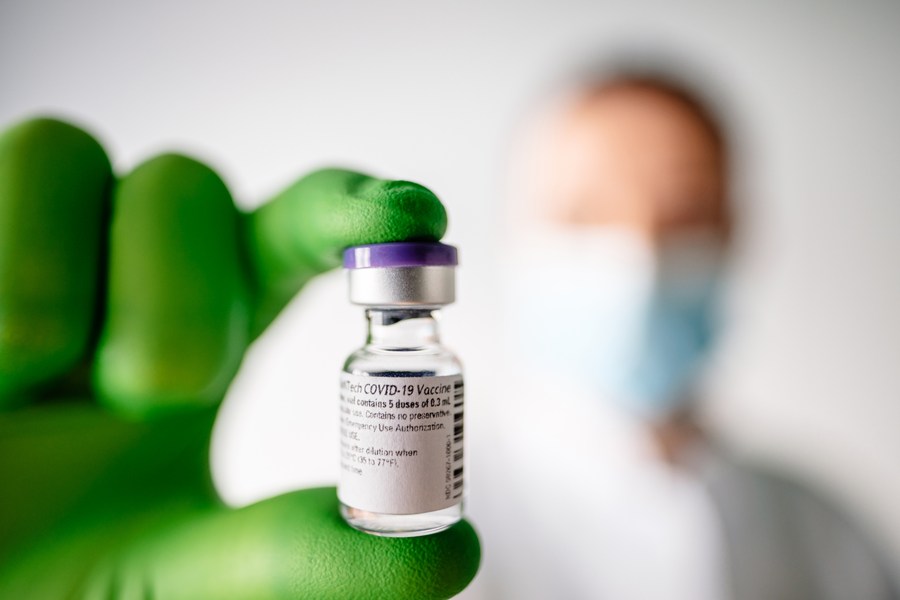Health care workers vaccination varies
Published : 06 May 2021, 18:19
Updated : 07 May 2021, 00:15
Vaccination of health care professionals in the country varies by occupational group and region, according to a press release of the Finnish Institute for Health and Welfare (THL)
A report recently released by the THL indicates that the vaccination coverage of health care professionals in Finland has so far been increasing at a fairly moderate pace.
"The majority of health care professionals who regularly deal with coronavirus patients or coronavirus itself have received the coronavirus vaccine. Vaccination coverage for other groups is generally lower. This indicates that vaccines have been successfully directed to the priority health care professionals and the elderly, in accordance with the priority list for vaccination," explained THL Chief Physician Tuija Leino.
Among the first groups to be vaccinated were health care personnel caring for patients with suspected or confirmed coronavirus infections, coronavirus sampling personnel, laboratory personnel performing coronavirus diagnostics, 24-hour care personnel and other social welfare and health care personnel providing urgent care. In addition, In addition, some health care professionals have received the vaccine as part of a medical risk group due to their underlying conditions.
Vaccination coverage varies by occupational group. In absolute terms, vaccinations have been highest among nurses and practical nurses, of whom 95,600 have received the vaccine. The total number of doctors vaccinated is lower, at approximately 13,900.
In relative terms, however, more doctors have been vaccinated than nurses. Almost 60% of doctors have been vaccinated, compared to 50% of radiographers, more than 40% of laboratory nurses and regular nurses and less than 40% of midwives and public health nurses.
"The report has been drawn up on the basis of information from the Central Register of Healthcare Professionals Terhikki and the Vaccination Register. Data on current work positions is not recorded in Terhikki, so the report also includes persons who do not work in the profession recorded in the register, for example due to a change of professional field. We can assume that those that had shorter training periods would also be more likely to have changed their field of work. This could also partly explain the lower vaccination coverage of nurses," explained THL Senior Researcher Heini Salo.
Less than one third of dentists, dental nurses and practical nurses have been vaccinated. One in five physiotherapists and oral hygienists have received the vaccine.
Vaccination coverage also varies greatly between different hospital districts. For nurses, vaccination coverage varies between 34% and 61% and for practical nurses between 18% and 40%, while for doctors coverage varies between 48% and 77% depending on the region.
The largest regional differences can be seen in the vaccination coverage of midwives and dental care professionals. For midwives, coverage varies between 15% and 74%, while for dentists it varies between 8% and 67%.
"At the beginning, the aim was to vaccinate social welfare and health care personnel to a very limited extent in order that there would be enough vaccines for the elderly. The different regions may have interpreted the vaccination instructions and organised the vaccinations in slightly different ways. In the next few weeks, the aim is to balance these regional differences by, for example, offering the vaccination throughout the country to personnel handling births," Tuija Leino explained.
THL’s report covers the vaccinations provided up until 15 April.


